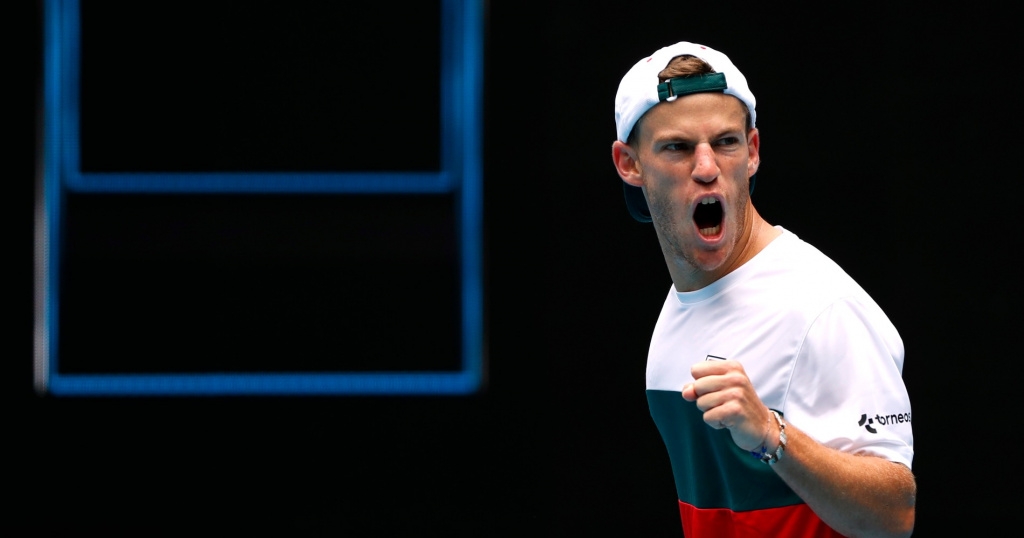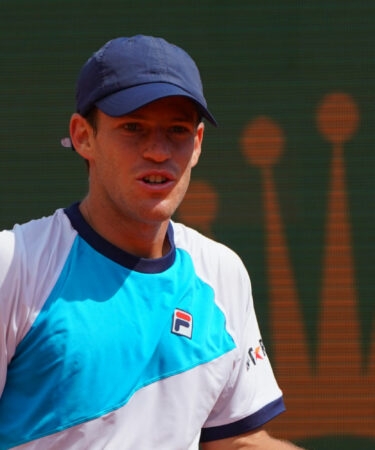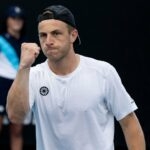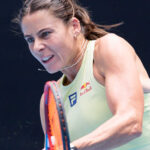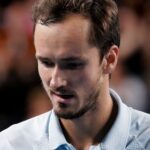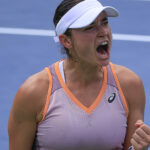Diego Schwartzman interview: From Buenos Aires to London, a journey worth every step
From humble beginnings, Diego Schwartzman has battled for most of his life. But, as he tells Simon Cambers, that’s what’s got him to where he is today.
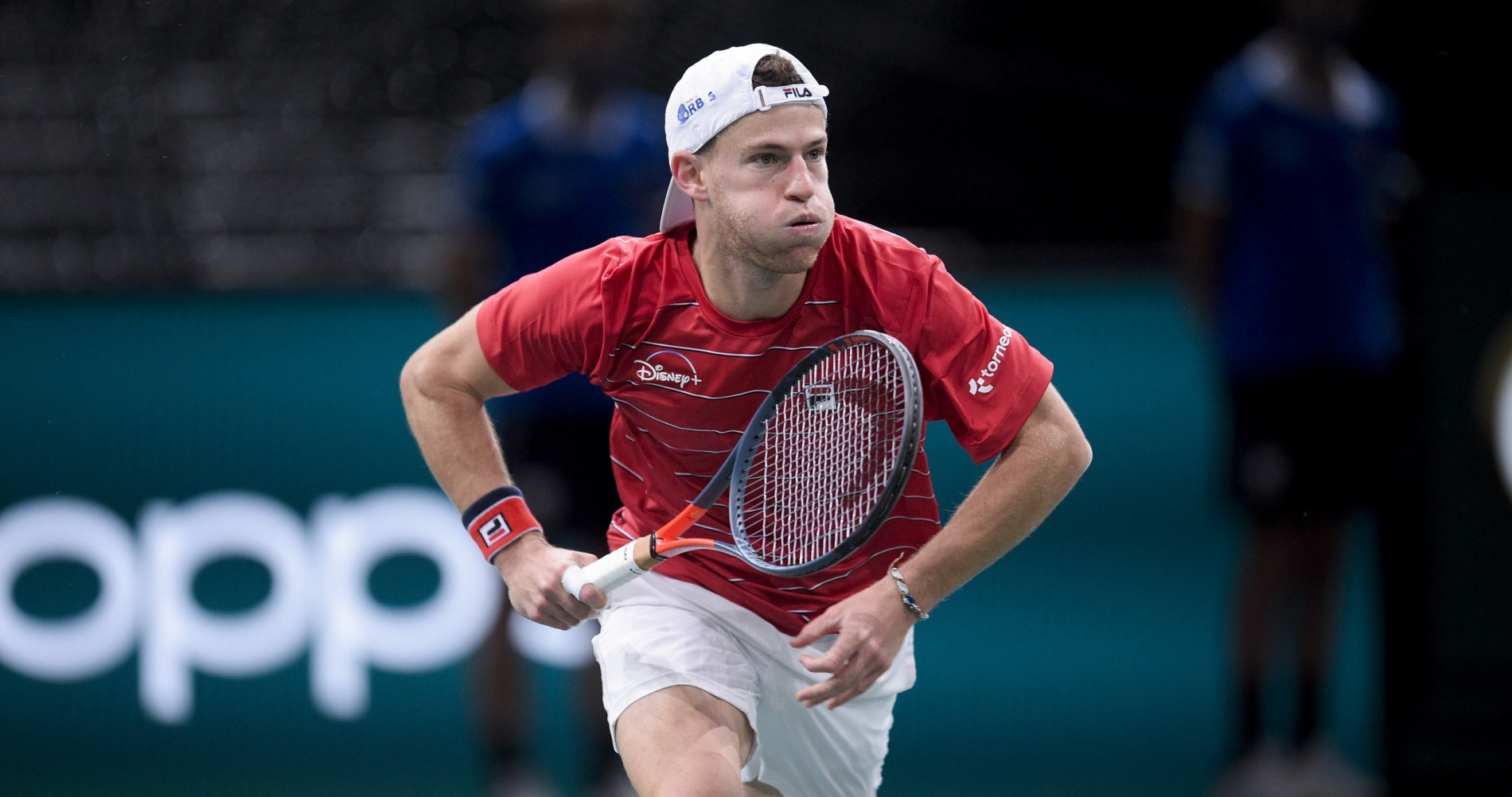 Diego Schwartzman (arg)
Diego Schwartzman (arg)
The path to the professional tennis world is littered with so many obstacles that sometimes it is a wonder anyone makes it at all. For most families, the financial cost and time required to dedicate to their children makes the idea of becoming a professional tennis player a bridge too far. For others, they have to take out loans, re-mortgage their house or find a wealthy sponsor and even then, there are no guarantees that they will be successful.
For Diego Schwartzman, growing up in Buenos Aires, playing professional tennis was a dream in itself. Forced to play his early years at home or in neighbouring South American countries because of the sheer cost of travelling, he was restricted in his competition, even though he was fortunate that, at the time, there were plenty of Futures and Challenger events at home. But this week, the 28-year-old will make his debut at the Nitto ATP Finals, outside of the four Grand Slams the most prestigious event on the ATP Tour, the season-ending event for the eight best players of the year.
His journey to this point has been little short of remarkable but his progression has been consistent, rising from No 88 in 2015 to No 52 in 2016, No 26 in 2017, No 17 in 2018, No 14 last year and now, finally, a place in the world’s top 10.
Improving
It’s a place he’s earned through his dedication, his athleticism and his sheer bloody-mindedness. There must have been countless times in his life when he was told that he was too short (at 5ft 7in, he’s one of the shortest players in the game) but he refused to give in, always believing that he was good enough and if he worked hard enough, he would get his reward.
“At the beginning of the year, I was trying to to be close and trying to reach the top 10,” Schwartzman said in an interview. “That was my my goal at the beginning of the year. And I was not thinking about London. And after we came back to the tour, after many months, I started the first three or four weeks, not in my best shape and I was not thinking two months ago about London. But after that everything was going up and I was playing my best every single week, week in, week out and the feeling was improving. And after Rome, I was thinking, OK, if I do well in Paris, I have the chance to be in London and to be top 10. So, yeah, here we are.”
Wind the clock back a couple of months and it’s amazing to see how far Schwartzman has come. At the US Open, he threw away a two-set lead and two match points in the decider as he lost to Britain’s Cameron Norrie in the first round. But he arrived in Rome shortly afterwards and duly played one of his best ever tournaments, beating Rafael Nadal for the first time, at the 11th attempt, and then pushing world No 1 Novak Djokovic all the way in the final. At Roland-Garros it took Nadal to stop him in the semi-finals and after reaching the final in Cologne, he wrapped up his place in London thanks to two wins in Paris.
Felicitaciones @dieschwartzman por la clasificación al Masters de #Londres #PequeMaestro❤️❤️@disneyplusla pic.twitter.com/Pf1EW4mvBu
— mariano zabaleta (@zabala7) November 6, 2020
His height is always an issue and he must tire of answering questions about it. But as the great Dutch footballer Johan Cruyff liked to say: “every disadvantage has an advantage” and so what he lacks in centimetres, he makes up for with his other assets.
“I think it gives me a lot of other other things, you know, how I move, how strong I am with my head, trying to take the opportunities, how I work every day,” he said. “You know, I have a lot of different things; maybe the people who are two metres, they can do different ones. So I think just it’s a different game and different practice every day.”
Passionate
Named after the legendary Argentina footballer Diego Maradona, Schwartzman had designs on being a footballer himself but it soon became clear that tennis was his destiny. Football may be like religion in Argentina, but tennis is not too far behind and the country has enjoyed many champions down the years, including the likes of Guillermo Vilas, Gabriela Sabatini and more recently, of course, Juan Martin Del Potro.
“It’s still a big, big sport,” he said. “I think football is is the first one. And then you have a lot of sports, not football. I think tennis, it’s one of the first after football and maybe you have rugby, girls’ hockey and a few more sports, like are really popular. But, you know, Argentinian people like to do sports, like to watch professional sports. We are really passionate people. I think it’s really tough to start a tennis career because of the expensive conditions, because we are really far, but we have many, many people every year starting tennis.”
Del Potro, recovering from more surgery, has been a big supporter of Schwartzman’s in 2020 and the world No 9 has been helped by a number of players down the years.
“He (Del Potro)’s always sending me messages when when I’m doing well,” Schwartzman said. “We have a good relationship. We are friends from the tour. It’s sad that he has a lot of injuries. When I started to play better we didn’t share a lot of good tournaments. But the guy who really, really helped me my career, the former players who are (Mariano) Zabaleta and (Juan) Monaco, they are like my big brothers. When I when I was 15, they started helping me, we did a lot of pre-seasons, practice, advice from them to me. So these two guys helped me a lot in my career.”
Difficult
Schwartzman’s background is well-documented, the tale of his great grandfather escaping from a train bound for a concentration camp in Nazi Germany now legendary on the Tour. When his father’s business fell through, the family made and sold jewellery to try to make a living. It was a tough upbringing but one that shows in Schwartzman’s work ethic, his tireless running around the court and his never-say-die attitude.
If he’s to win a Grand Slam, he believes it’s most likely to happen at Roland-Garros, even if he laughed that he might have to wait until Nadal retires. Nadal and Djokovic won two of the year’s three Grand Slams but Dominic Thiem’s win at the US Open offers others a glimmer of hope that they may be able to do the same.
“Dominic is helping a lot of guys,” Schwartzman said. “(Alexander) Zverev as well, playing the final there, to think, OK, we can do it. But it’s really difficult, you know, what you see, guys, is what we see here. So it’s really difficult to beat these guys in five sets and in a grand slam. They’re really, really good.”
He will begin his London campaign against world No 1 Djokovic on Monday but Schwartzman does not fear anyone or anything. He’s already achieved more than he ever thought possible. And besides, he’s come too far to stop now.
